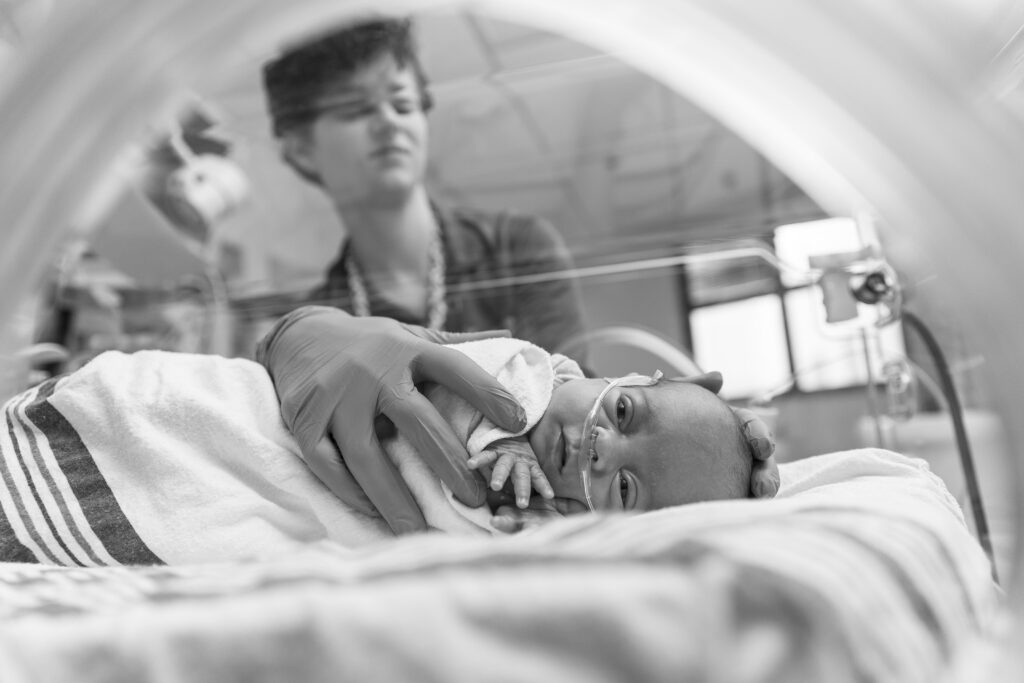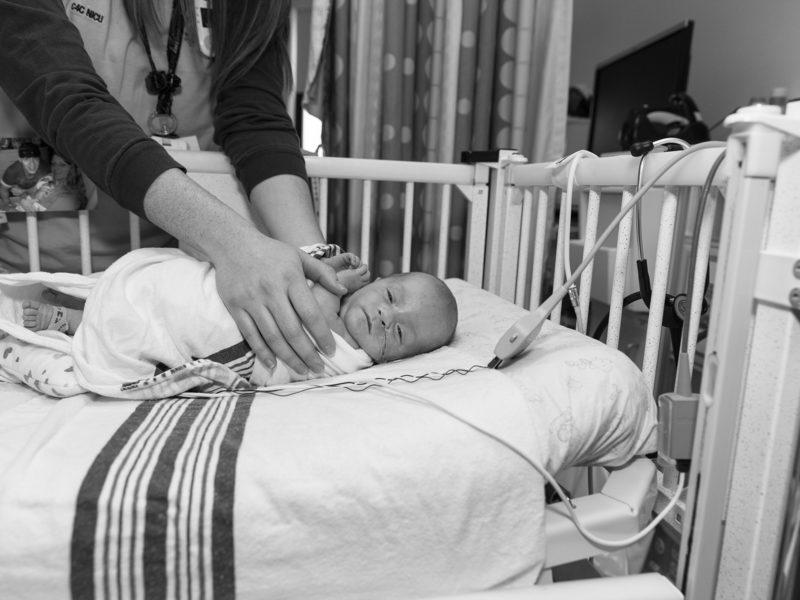Higher Respiratory Severity Scores Associated with Bronchopulmonary Dysplasia-Associated Pulmonary Hypertension Risk
Higher Respiratory Severity Scores Associated with Bronchopulmonary Dysplasia-Associated Pulmonary Hypertension Risk https://pediatricsnationwide.org/wp-content/uploads/2024/02/031618ds0470-1024x683.jpg 1024 683 Mary Bates, PhD Mary Bates, PhD https://secure.gravatar.com/avatar/c6233ca2b7754ab7c4c820e14eb518c8?s=96&d=mm&r=g- March 06, 2024
- Mary Bates, PhD

The RSS score is noninvasive and may be clinically useful for risk stratification in extremely preterm infants.
Researchers at Nationwide Children’s report that elevations in the respiratory severity score were correlated with an increased risk of bronchopulmonary dysplasia-associated pulmonary hypertension in preterm infants. This study identifies a pragmatic clinical risk score that can be measured non-invasively, that may improve risk stratification for infants born extremely preterm who are evaluated for pulmonary hypertension.
Bronchopulmonary dysplasia (BPD) is a common complication experienced by infants born extremely preterm. Approximately 20-40% of infants with BPD develop BPD-associated pulmonary hypertension (BPD-PH), a disease of the lung vasculature that increases the risk of both short- and long-term morbidity and mortality.
Echocardiograms are the most frequently used screening assessment for BPD-PH, and consensus guidelines recommend their use at 36 weeks’ postmenstrual age. However, echocardiograms are expensive, may lack specificity for BPD-PH and are utilized variably across centers. Additionally, the optimal timing of repeat BPD-PH echocardiography after this age remains unknown.
The respiratory severity score (RSS) is a noninvasive biomarker calculated from the mean airway pressure and the fraction of inspired oxygen. In the new study, the researchers investigated whether elevations in the RSS, measured concurrent with echocardiography, are associated with an increased risk of BPD-PH in extremely preterm infants. They conducted a retrospective cohort study of over 200 infants born extremely preterm admitted to the BPD center at Nationwide Children’s between 2010 and 2018.
The results indicated that elevations in the RSS were associated with a greater probability of BPD-PH.
“This may be clinically useful because it suggests that a patient with a low RSS who is otherwise doing well is less likely to have BPD-PH and may not require frequent or even repeat echocardiograms,” says Matthew Kielt, MD, an attending neonatologist in the Comprehensive Center for Bronchopulmonary Dysplasia at Nationwide Children’s and the study’s lead author.
“On the other hand, if a patient has high or increasing RSS scores, that should increase the index of suspicion for BPD-PH and could potentially inform a provider to obtain an echocardiogram more readily.”
Next, the researchers say that prospective studies are needed to validate the RSS as a clinical risk biomarker and to identify the optimal timing of echocardiogram assessments for the management of BPD-PH in preterm infants.
“We suspect that early elevations in the RSS may alert a provider to a patient who is at the highest risk of BPD-PH, possibly even before the formal timepoint of BPD diagnosis at 36 weeks postmenstrual age,” says Dr. Kielt, who is also an assistant professor of clinical pediatrics at The Ohio State University College of Medicine. “Another direction we hope to take this work is to look at BPD-PH risk in extremely preterm infants early on in life so that we can perhaps modify the disease risk profile well before current recommendations for BPD screening.”
Reference:
Beer L, Rivera BK, Jama W, Slaughter JL, Backes CH, Conroy S, Kielt MJ. Association of the respiratory severity score with bronchopulmonary dysplasia-associated pulmonary hypertension in infants born extremely preterm. J Perinatol. 2023 Oct 18. doi: 10.1038/s41372-023-01798-y. Epub ahead of print
About the author
Mary a freelance science writer and blogger based in Boston. Her favorite topics include biology, psychology, neuroscience, ecology, and animal behavior. She has a BA in Biology-Psychology with a minor in English from Skidmore College in Saratoga Springs, NY, and a PhD from Brown University, where she researched bat echolocation and bullfrog chorusing.
- Mary Bates, PhDhttps://pediatricsnationwide.org/author/mary-bates-phd/December 27, 2016
- Mary Bates, PhDhttps://pediatricsnationwide.org/author/mary-bates-phd/
- Mary Bates, PhDhttps://pediatricsnationwide.org/author/mary-bates-phd/
- Mary Bates, PhDhttps://pediatricsnationwide.org/author/mary-bates-phd/






